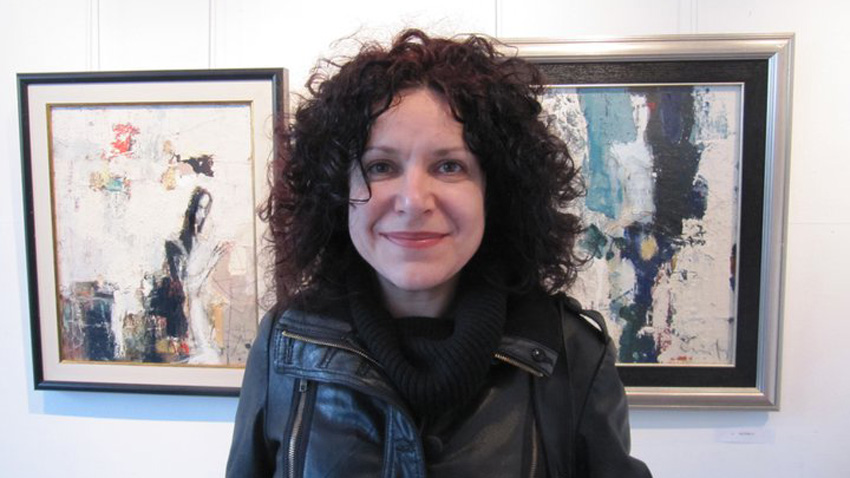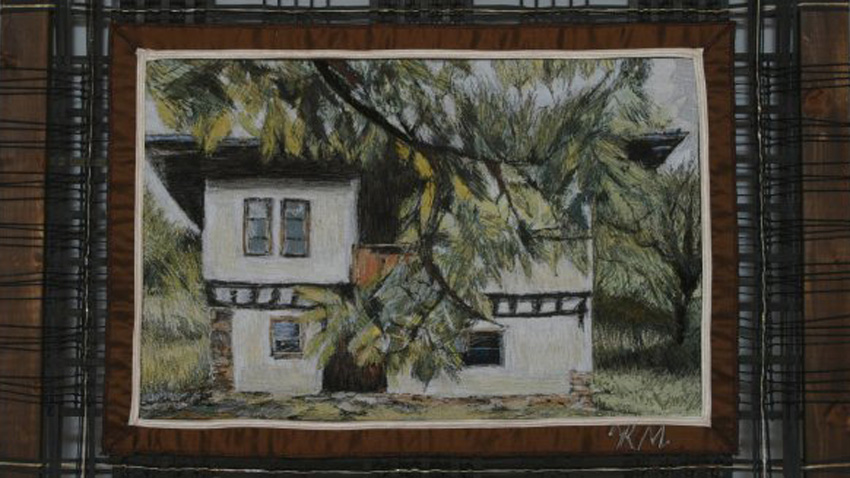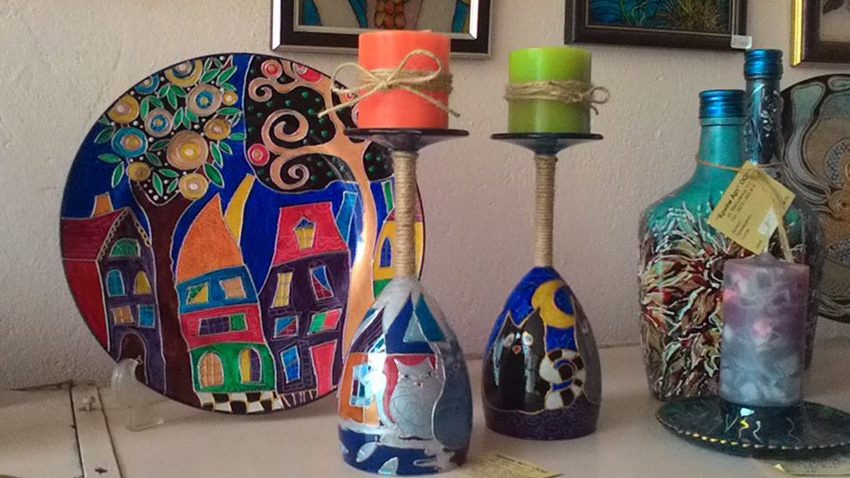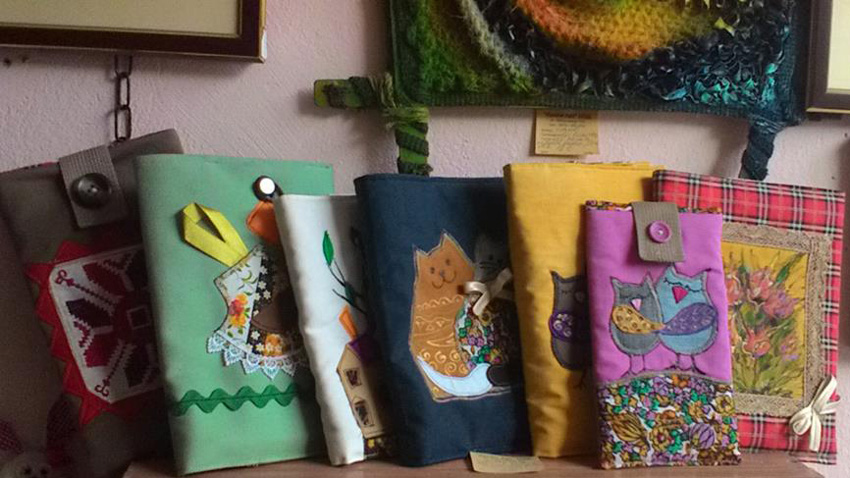 3
3
Kremena Maneva from Rousse is an artist who demonstrates that you don’t need brushes or paints to create a picture – what she uses is fabric and thread with the help of a sewing machine. There are landscapes and portraits in her studio in Rousse that can easily be mistaken for pastels or oil paintings. Each colour seam is like a brushstroke on the satin, taffeta or translucent material she uses as “backcloth”. It takes her around one month to make each textile picture. All works Kremena has made are unique and are very much in demand by art connoisseurs from abroad. More about how it all started and about how she creates her “paintings” from Kremena Maneva:
 “At one point I had many and different colours and sewing patterns and I just didn’t know how to apply them. Then it came to me – I could use them as inlays. As I went along they grew more and more complex until they ended up as whole paintings. As time went by I put in more and more machine sewn seams so they stood out in relief, adding more depth and making the pictures more vivid and colourful. Once the composition is ready, the setting is done by hand – framing the picture using bits of fabric or leather, the choice of frame and its colour. The preliminary work like making the small pieces of fabric and the final touches are also done by hand.”
“At one point I had many and different colours and sewing patterns and I just didn’t know how to apply them. Then it came to me – I could use them as inlays. As I went along they grew more and more complex until they ended up as whole paintings. As time went by I put in more and more machine sewn seams so they stood out in relief, adding more depth and making the pictures more vivid and colourful. Once the composition is ready, the setting is done by hand – framing the picture using bits of fabric or leather, the choice of frame and its colour. The preliminary work like making the small pieces of fabric and the final touches are also done by hand.”

In time Kremena started using fabric paints, her technique got more and more complicated, her choice of fabrics more and more diverse and the pictures themselves – more and more beautiful. She says what she finds most difficult is depicting humans, because the fabric constantly changes shape and she has to be extra careful so that the facial features will not be distorted. Unfortunately, in recent years interest in textile pictures has been dwindling in Bulgaria because they are so expensive, but the price is so high because the materials used and the work that goes into making them are themselves expensive. At one time Kremena gave up making textile paintings, but she recently created one more picture. To cater for the interest of customers, the artist has channeled her talent in a different direction:

“In recent years I have been making smaller works – they too are hand-made and unique, but they are more practical and more people can afford them. I also make book and tablet cases, candlesticks, ornamental plates, vases, I also paint on glass and make bags with inlays. Women relish having something that no one else has, something that is one of a kind. The inlays are abstract, sometimes floral.”
Which part of her work does Kremena enjoy most?
“The most pleasurable part of the process is inventing something new, designing it, but also seeing the finished product. It is a delight to see a design come to life.”
Kremena says she is not making any grand plans for the future, that it is her ideas of the moment that matter most. She is to take part in expositions and bazaars where she will be displaying her delightful works.

English version: Milena Daynova
Photos: courtesy of Kremena Maneva
The Bogdan Khmelnitsky Melitopol State Pedagogical University, together with the Shumen University "Bishop Konstantin Preslavsky", organize the ninth International Bulgarian readings "Youth in Science without Borders", which will be..
"Bulgarians decorate the world," tells us Emilia Juеcker, who has been living in Germany for decades. The diversity of our cultural traditions, literature, and folklore is at the heart of the seventh annual meeting "Bulgarian Speech, Music, Colors and..
The second edition of the Festival of Bulgarians and Descendants of Bulgarians in Argentina will be held on November 30 at the San Juan Bosco School in the Argentine city of Comodoro Rivadavia. “This Saturday, our beloved society will welcome..

+359 2 9336 661
